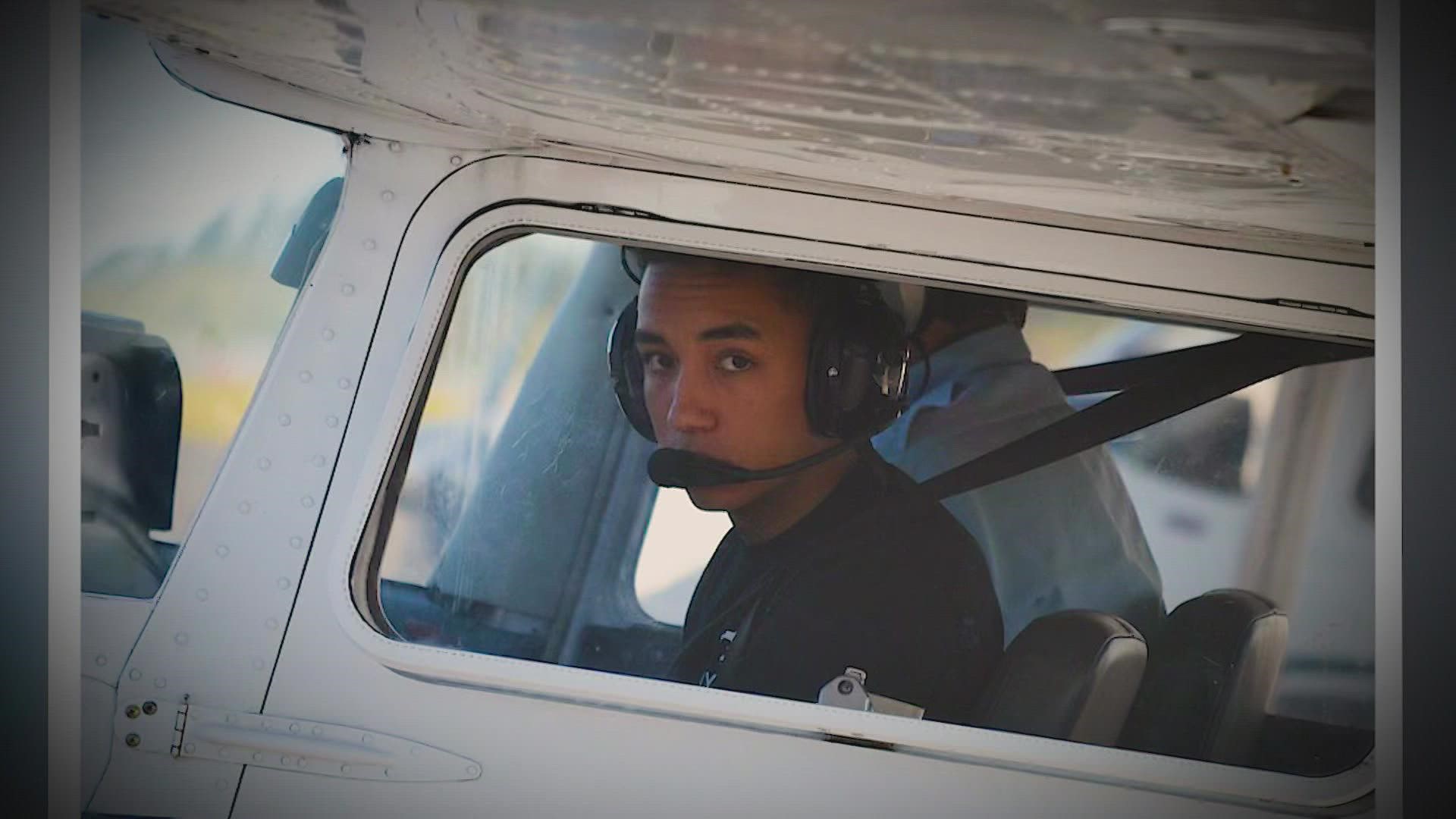SEATAC, Wash. — A local non-profit is helping young people of color overcome the barriers preventing them from working in aviation careers.
The Red-Tailed Hawks Flying Club, a chapter of the Black Pilots of America, gathered at SeaTac International Airport on a recent Saturday morning for a lesson in what it takes to lift off.
Jesse Hayes, a Boeing engineer, is president of the club.
“We have an opportunity to really open up doors, open up eyes and inspire hearts,” he said.
Their mission is to introduce young people of color to careers that might otherwise seem off-limits to them.
Julian Dorsey, a 21-year-old from Bremerton, is one of the club members, and he has a goal.
“Airline pilot for sure,” he said.
But the path to a career in the cockpit has lots of hurdles.
“It's definitely a super expensive hobby, and it's a lot of work for sure. Not only being in the plane but knowing all of the knowledge behind it,” Dorsey said.
“Finance is definitely no. 1. Many families think in terms of hundreds of dollars, and when you’re flying airplanes, you have to think in terms of tens of thousands of dollars,” Hayes said.
In addition to mentoring and education, the Red-Tailed Hawks Flying Club offers scholarships to help teens and college students log more miles in the air and pay for flight school.
Samantha Carter, 22, is a great example of what this organization is trying to achieve.
We first met her in 2016 when the Hawks visited Auburn Municipal Airport.
“I want to fly a 787 at least once,” Carter said at the time.
She ended up graduating from Embry-Riddle, one of the premier aeronautical universities, and now works as an aerospace engineer for the Navy.
Red-Tailed Hawks helped pay for her training.
“It really helped me get my foot in the door. And just being able to write on my resume that I have a private pilot license, that kind of turns heads. It's not something everyone else has,” Carter said.
Airlines are starting to recognize that they need to do more to promote diversity among their ranks.
“When I look back at my career, it would have been great to have somebody with a diverse background to be able to mentor me as I made it to the airlines. That's something that is very difficult because there's just not many of us,” said JP Wilson, an Alaska Airlines captain.
He is co-leading an effort to train and hire more pilots of color.
In response to the summer 2020 protests over racial inequality, Wilson and his colleague Captain Ron Limes approached their managers with an idea.
Instead of waiting for pilots of color to come to them, what if the airline went out and invested in people pursuing these careers?
They got results. Alaska just launched True North, a program that covers the cost of flight training for four students enrolled in historically Black colleges and universities, a tab that runs into the tens of thousands of dollars.
“Sometimes this population has trouble with the financial aspect of flying because it's an expensive game,” Limes said. “It is pricey, and I lived it.”
Students selected for the program are guaranteed jobs at Horizon Air and eventually Alaska.
Money is one thing. Fitting in is another.
“Not only feeling you belong but actually belonging,” Hayes said.
Carter said in her early days of schooling, she felt a little out of place surrounded by almost all men. She said she felt welcome right away once she got into the workplace.
“It feels equal. I definitely don’t feel weird at all,” Carter said.

